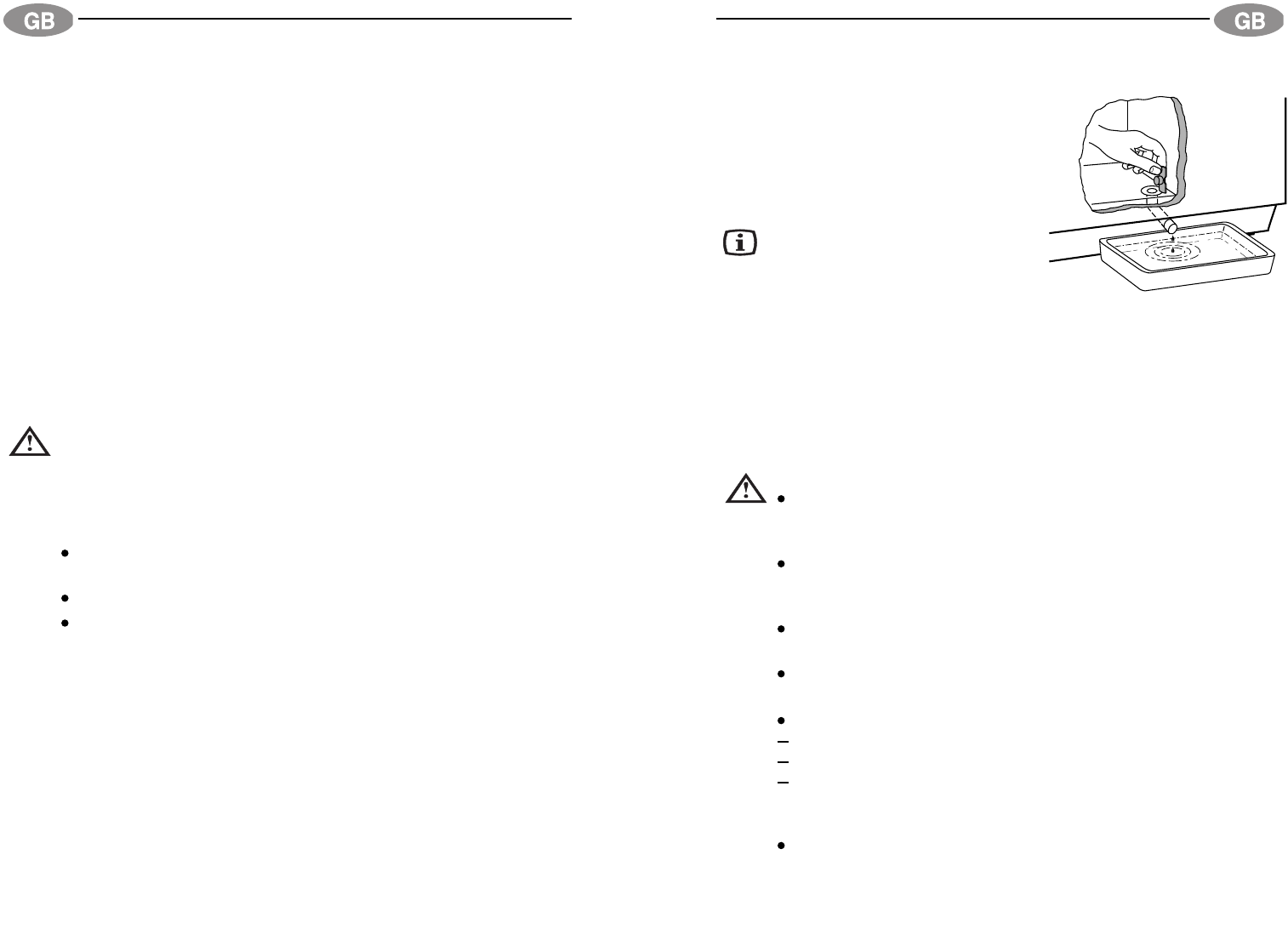
6 15
Disposal
Appliance Packaging Information
All materials are environmentally friendly. They can be dumped or burned
at an incinerating plant without danger.
About the materials: The plastics can be recycled and are identified as
follows:
>PE< for polyethylene, e.g. the outer covering and the bags in the interior.
>PS< for polystyrene foam, e.g. the pads, which are all free of
chlorofluorocarbon.
The carton parts are made from recycled paper and should be disposed
of at a waste-paper recycling collection location.
Disposal of old Appliances
For environmental reasons, refrigeration appliances must be disposed of
properly. This applies to your old appliance, and - at the end of its service
life - for your new appliance as well.
Warning! Before disposing of old appliances make them inoperable.
Remove plug from mains, sever the power cable, remove or destroy any
snap or latch closures. This eliminates the danger of playing children
locking themselves into the appliance (danger of suffocation!) or place
themselves into other life-endangering situations.
Disposal:
The appliance may not be disposed of with domestic waste or bulky
refuse.
The refrigerating circuit must not be damaged.
Information concerning collection schedules or locations can be
obtained from your local Council or Environmental Health Office.
FF
Pull out the plug of the defrost
water outlet at the bottom of the
freezer.
FF
To catch the defrost water, place
the freezing trays (not included
with all models), or flat receptacle
under the defrost water outlet.
Tip: To accelerate the defrosting
process, place a saucepan with
hot water in the appliance and
close the lid. Remove pieces of ice
that break away before defrosting
is complete.
FF
After defrosting thoroughly clean the freezer interior, as well as interior
accessories (see section: "Cleaning and Care").
Cleaning and care
For hygienic reasons the appliance interior, including interior accessories,
should be cleaned regularly.
Warning!
The appliance may not be connected to the power supply whilst it is
being cleaned. Electric shock hazard! Before cleaning, pull out the
mains plug or disconnect from the electricity supply.
Never clean the appliance with a steam cleaner. Moisture could
accumulate in electrical components, danger of electrical shock! Hot
vapours can lead to the damage of plastic parts.
Take care that no fluid enters the control panel or any other electrical
parts.
The appliance must be dry before it is placed back into service.
Important!
Ethereal oils and organic solvents can attack plastic parts, e.g.
Juice from lemon or orange peel;
butyric acid;
cleansers which contain acetic acid.
Do not allow such substances to come into contact with parts of the
appliance.
Do not use any abrasive cleansers.












